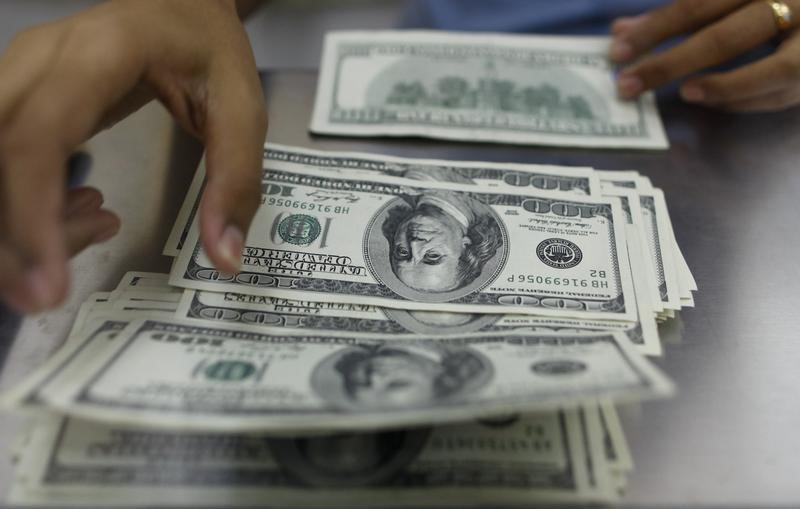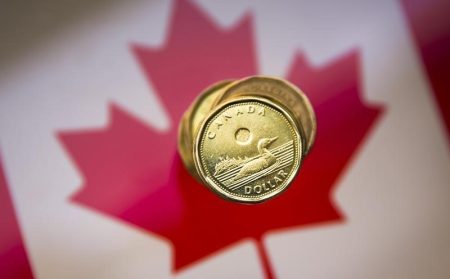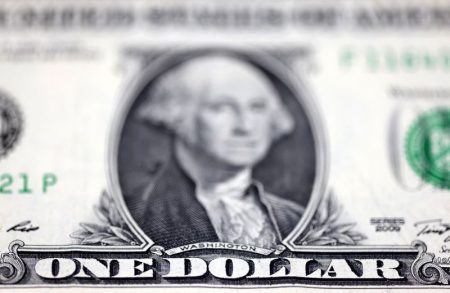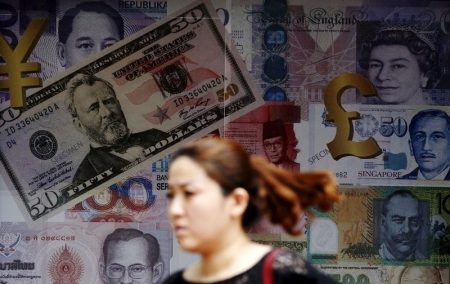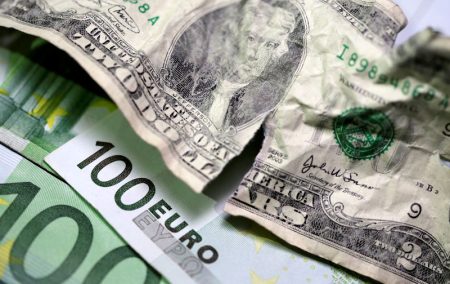Investing.com – The U.S. dollar edged lower in early European hours Friday, consolidating after the previous session’s strong gains, with traders wary ahead of next week’s Federal Reserve meeting.
At 03:00 ET (07:00 GMT), the , which tracks the greenback against a basket of six other currencies, traded 0.1% lower at 100.480, after gaining 0.5% overnight.
The index is on course for a gain of around 1% this week, bouncing off the 15-month low seen earlier in the week.
Dollar boosted by solid labor data
The dollar received a boost on Thursday after data showed the number of Americans filing for unemployment benefits unexpectedly fell last week, suggesting the U.S. labor market remains tight.
The is widely expected to lift interest rates by another 25 basis points next week, but the central bank’s next move remains uncertain and the odds of another hike nudged up after the data.
That said, traders look unwilling to commit too strongly ahead of the meeting, with Fed policymakers now in the blackout period.
Sterling gains after strong U.K. retail sales
rose 0.2% to 1.2891, after British rose 0.7% on the month in June, more than the 0.2% rise expected. This is still 1.0% lower than a year earlier but beat forecasts for a 1.5% decline.
“Retail sales grew strongly, with food sales bouncing back from the effects of the extra bank holiday, partly helped by good weather, and department stores and furniture shops also having a strong month,” ONS chief economist Grant Fitzner said.
Euro edges higher; ECB to hike next week
rose 0.1% to 1.1139, bouncing after having dropped 0.6% on Thursday, as the dollar appreciated.
The is expected to raise interest rates by 25 basis points next week, and traders will be looking for guidance of future policy with a number of policymakers having sounded more dovish ahead of their blackout period.
Japanese inflation remains above target
rose 0.1% to 140.17 after data showed Japan’s rose 3.3% in June from a year earlier, remaining above the Bank of Japan’s 2% target.
The is expected to hold policy steady next week, including its yield control scheme, but it could revise up this year’s inflation forecast, pointing to future tightening.
Elsewhere, fell 0.1% to 7.1680, following reports indicating the country’s biggest state-owned banks had intervened in currency markets to support the yuan.
Read the full article here





